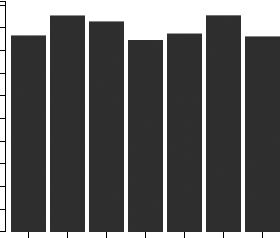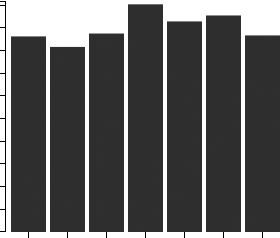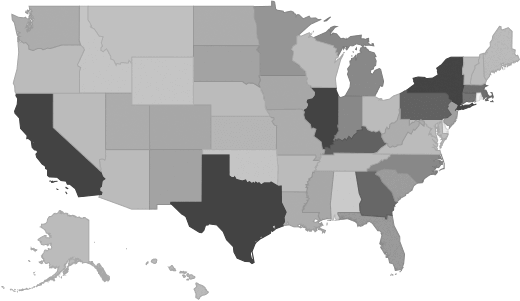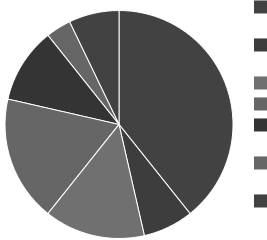Pension Funds, Trusts & Financial Vehicles Industry - Market Research Report
Industry Overview
Industries in the Funds, Trusts, and Other Financial Vehicles subsector group legal entities (i.e., funds, plans, and/or programs) organized to pool securities or other assets on behalf of shareholders or beneficiaries of employee benefit or other trust funds. The portfolios are customized to achieve specific investment characteristics, such as diversification, risk, rate of return, and price volatility. These entities earn interest, dividends, and other investment income, but have little or no employment and no revenue from the sale of services. Establishments with employees devoted to the management of funds are classified in Industry Group 5239, Other Financial Investment Activities. Establishments primarily engaged in holding the securities of (or other equity interests in) other firms are classified in Sector 55, Management of Companies and Enterprises. Equity real estate investment trusts (REITs) that are primarily engaged in leasing buildings, dwellings, or other real estate property to others are classified in Subsector 531, Real Estate.
Source: U.S. Census BureauMarket Size and Industry Forecast
This research report analyzes the market size and trends in the Pension Funds, Trusts and Financial Vehicles industry. It shows overall market size from 2020 to the present, and predicts industry growth through 2030. Revenues data include both public and private companies.
| Historical | Forecasted |
|---|
| 2020 | 2021 | 2022 | 2023 | 2024 | 2025 | 2026 | 2027 | 2028 | 2029 | 2030 |
|---|
| Market Size (Total Revenue) | Included in Report |
| % Growth Rate |
| Number of Companies |
| Total Employees |
| Average Revenue per Company |
| Average Employees per Company |
Source: U.S. government financial dataIndustry Revenue ($ Billions)

Industry Forecast ($ Billions)

Advanced econometric models forecast five years of industry growth based on short- and long-term trend analysis. Market size includes revenue generated from all products and services sold within the industry.
Geographic Breakdown by U.S. State
Market size by state reveals local opportunity through the number of companies located in the region. Each state's growth rate is affected by regional economic conditions. Data by state can be used to pinpoint profitable and nonprofitable locations for Pension Funds, Trusts & Financial Vehicles companies in the United States.
Pension Funds, Trusts & Financial Vehicles Revenue by State

Distribution by Company Size
| Company Size | All Industries | Pension Funds, Trusts & Financial Vehicles |
|---|
| Small Business (< 5 Employees) | Included |
| Small Business (5 - 20) |
| Midsized Business (20 - 100) |
| Large Business (100 - 500) |
| Enterprise (> 500) |
Pension Funds, Trusts & Financial Vehicles Industry Income Statement (Average Financial Metrics)
Financial statement analysis determines averages for the following industry forces:
- Cost of goods sold
- Compensation of officers
- Salaries and wages
- Employee benefit programs
- Rent paid
- Advertising and marketing budgets
The report includes a traditional income statement from an "average" company (both public and private companies are included).
| Industry Average | Percent of Sales |
|---|
| Total Revenue | Included |
| Operating Revenue |
| Cost of Goods Sold (COGS) |
| Gross Profit |
| Operating Expenses |
| Operating Income |
| Non-Operating Income |
| Earnings Before Interest and Taxes (EBIT) |
| Interest Expense |
| Earnings Before Taxes |
| Income Tax |
| Net Profit |
Average Income Statement

Cost of Goods Sold
Salaries, Wages, and Benefits
Rent
Advertising
Depreciation and Amortization
Officer Compensation
Net Income
Financial Ratio Analysis
Financial ratios allow a company's performance to be compared against that of its peers.
| Financial Ratio | Industry Average |
|---|
| Profitability Ratios | Included |
| Profit Margin |
| ROE |
| ROA |
| Liquidity Ratios |
| Current Ratio |
| Quick Ratio |
| Activity Ratios |
| Average Collection Period |
| Asset Turnover Ratio |
| Receivables Turnover Ratio |
| Inventory Conversion Ratio |
Salary information for employees working in the Pension Funds, Trusts & Financial Vehicles industry.
| Title | Percent of Workforce | Bottom Quartile | Average (Median) Salary | Upper Quartile |
|---|
| Management Occupations | 13% | Included |
| Top Executives | 5% |
| Chief Executives | 0% |
| General and Operations Managers | 4% |
| Operations Specialties Managers | 6% |
| Financial Managers | 5% |
| Financial Managers | 5% |
| Business and Financial Operations Occupations | 33% |
| Business Operations Specialists | 12% |
| Claims Adjusters, Appraisers, Examiners, and Investigators | 5% |
| Claims Adjusters, Examiners, and Investigators | 5% |
| Compensation, Benefits, and Job Analysis Specialists | 11% |
| Compensation, Benefits, and Job Analysis Specialists | 11% |
| Financial Specialists | 21% |
| Accountants and Auditors | 5% |
| Accountants and Auditors | 5% |
| Financial Analysts and Advisors | 17% |
| Financial Analysts | 6% |
| Personal Financial Advisors | 8% |
| Computer and Mathematical Occupations | 5% |
| Sales and Related Occupations | 9% |
| Sales Representatives, Services | 8% |
| Securities, Commodities, and Financial Services Sales Agents | 6% |
| Securities, Commodities, and Financial Services Sales Agents | 6% |
| Office and Administrative Support Occupations | 32% |
| Financial Clerks | 6% |
| Information and Record Clerks | 6% |
| Customer Service Representatives | 9% |
| Customer Service Representatives | 9% |
| Secretaries and Administrative Assistants | 10% |
| Secretaries and Administrative Assistants | 10% |
| Secretaries and Administrative Assistants, Except Legal, Medical, and Executive | 8% |
| Other Office and Administrative Support Workers | 9% |
| Office Clerks, General | 7% |
| Office Clerks, General | 7% |
Government Contracts
The federal government spent an annual total of
$5,503,474 on the pension funds, trusts & financial vehicles industry. It has awarded 133 contracts to 34 companies, with an average value of $161,867 per company.
Top Companies in Pension Funds, Trusts & Financial Vehicles and Adjacent Industries
| Company | Address | Revenue
($ Millions) |
|---|
Included |



